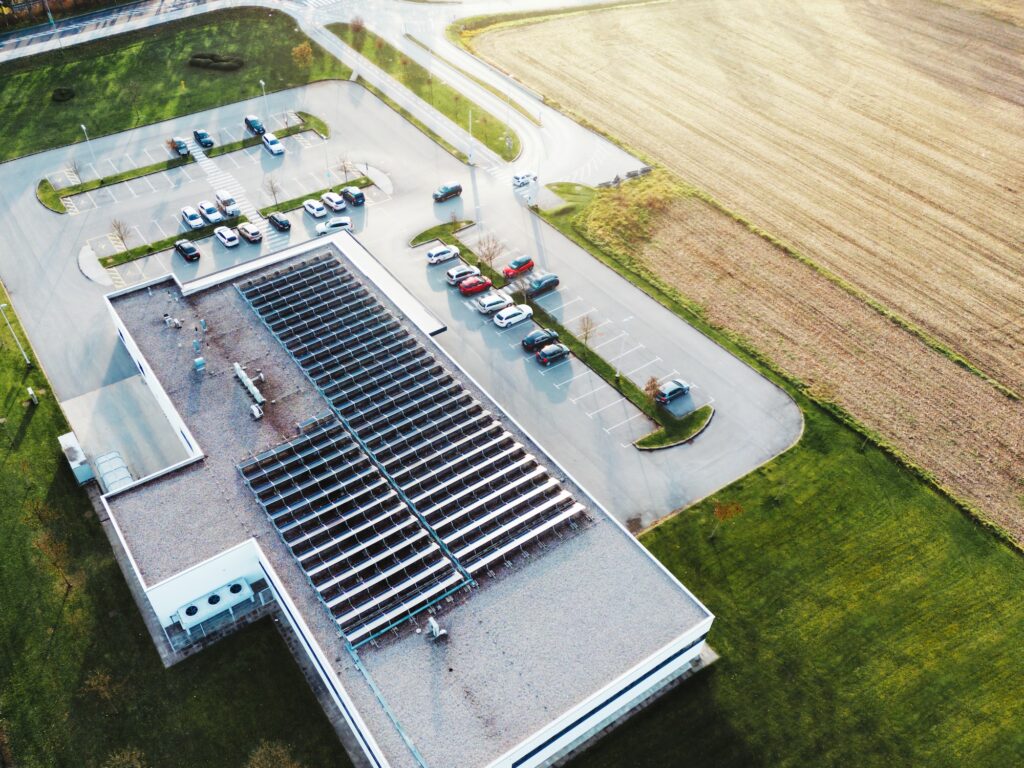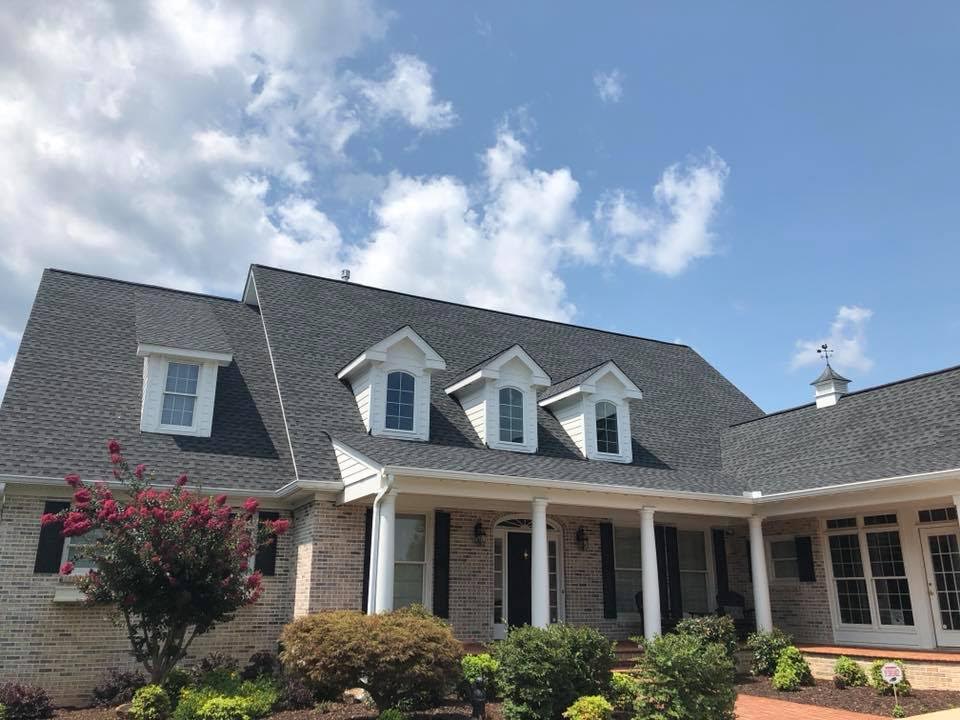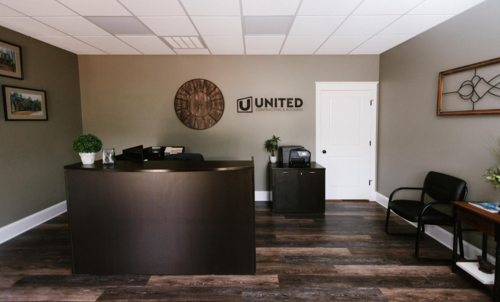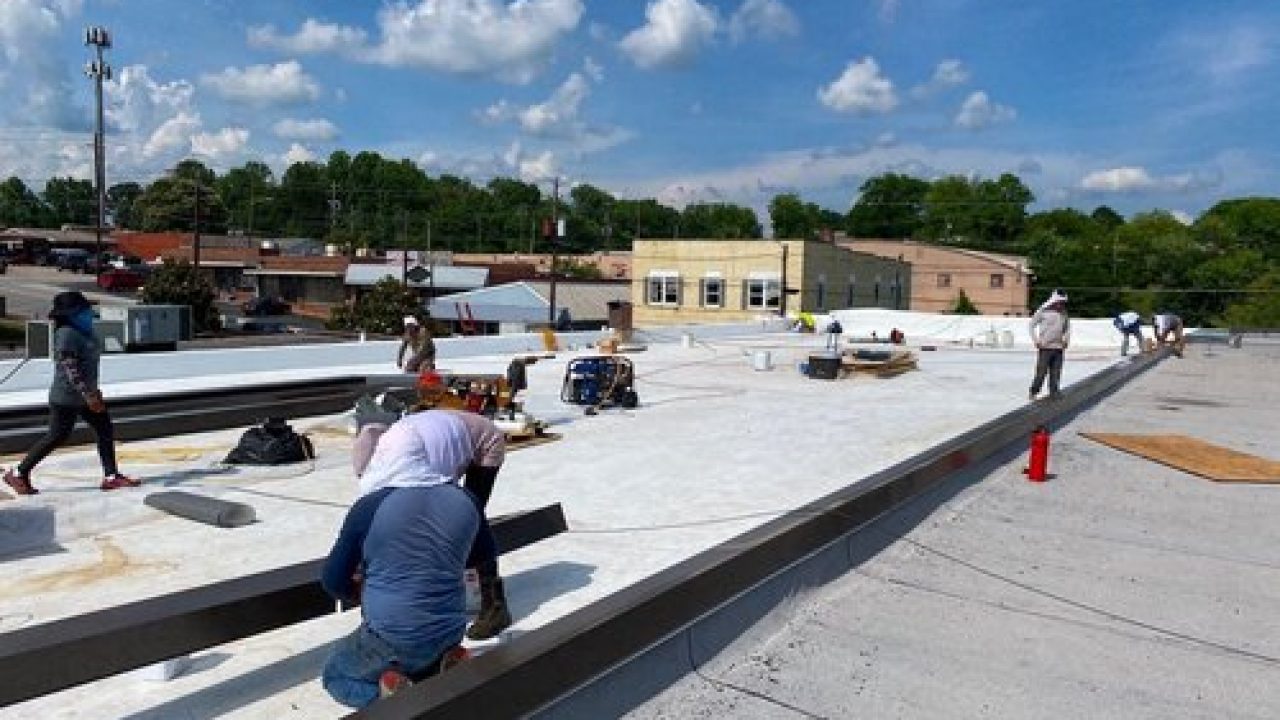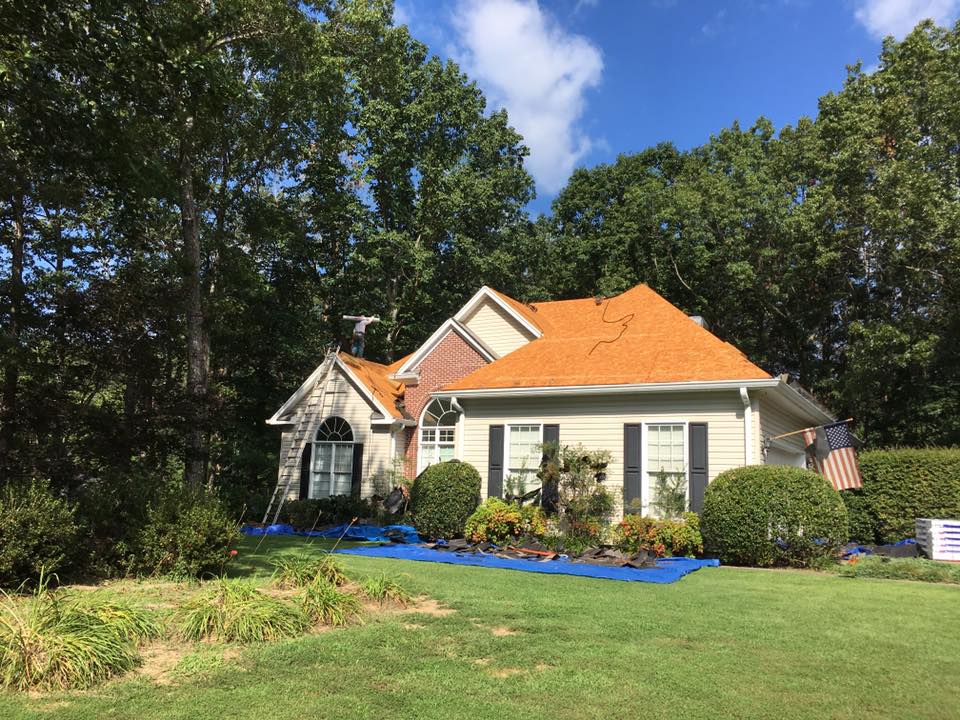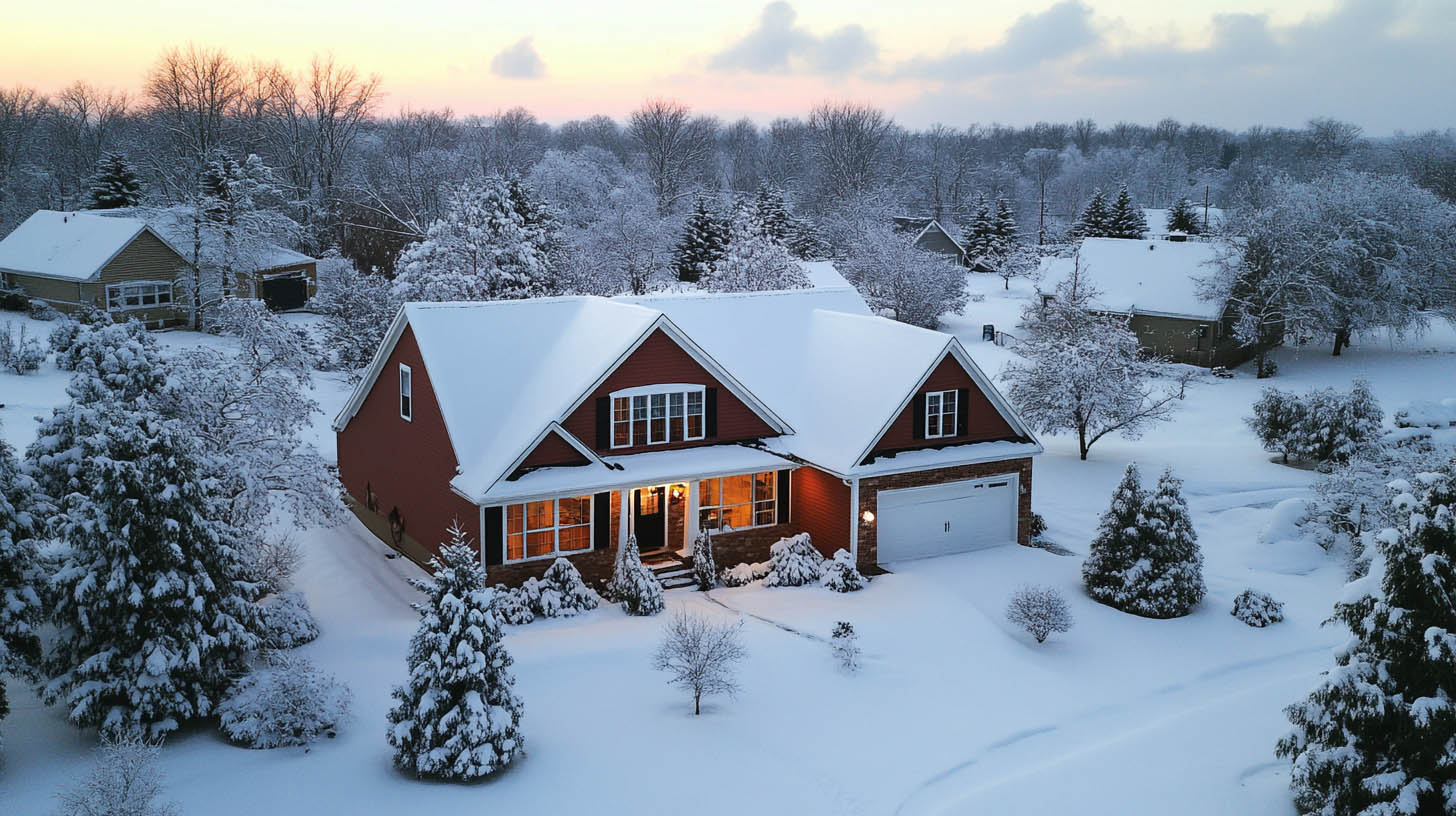Welcome to the latest blog by United Contracting & Roofing, the leading commercial roofing contractors in Atlanta, GA!
Here, we’ve uncovered the biggest price factors affecting commercial roofing systems in Georgia. From roofing materials and size to accessibility and local labor costs, these elements are crucial in determining overall expenses. Building code compliance, warranty options, and maintenance requirements also factor into the equation. Stay informed to make the best decisions for your commercial roofing needs in Georgia.
Key Takeaways
- Roof complexity, design intricacy, and drainage systems impact costs
- Labor costs vary based on location, demand, and project complexity
- Prioritize long-term protection and client satisfaction with warranties
- Energy-efficient roofing materials reduce operational costs
Roofing Materials
In this article, United Contracting & Roofing will explore the various roofing materials commonly used in commercial roofing systems in Georgia. When it comes to commercial roofing in Atlanta, GA, selecting the right materials is crucial. As experienced commercial roofing contractors in Atlanta, GA, we understand the significance of choosing durable and cost-effective materials for commercial roofing projects.

A widely favored roofing material among commercial buildings in Atlanta, GA, is EPDM (Ethylene Propylene Diene Terpolymer). Renowned for its durability and ability to withstand harsh weather conditions, EPDM is a preferred option for numerous commercial roofing companies in the area. Another frequently utilized material is TPO (Thermoplastic Polyolefin), prized for its superb energy efficiency and ease of installation, which ultimately minimizes labor costs for commercial roofing contractors.
Many roofing companies specializing in commercial roofing in Atlanta, GA, recommend built-up roofing (BUR) systems as a more traditional option. BUR roofs consist of multiple layers of materials, such as bitumen and gravel, providing excellent waterproofing and protection against UV rays. Additionally, metal roofing is gaining popularity in commercial roofing due to its longevity and low maintenance requirements.
As a reputable roofing company specializing in commercial roofing, United Contracting & Roofing advises clients to consider the specific requirements of their commercial building when selecting roofing materials. By working closely with experienced commercial roofing contractors, businesses can ensure that they choose the most suitable materials for their commercial roofing projects in Atlanta, GA.
Roof Size
When considering commercial roofing systems in Georgia, our team of commercial roofing contractors at United Contracting & Roofing considers roof size a crucial determinant of overall project costs. The roof size directly impacts material quantities, labor requirements, and project timelines, all of which significantly determine the final price for the roofing system.
Three key factors profoundly influence the dynamics of commercial roofing projects:
Sense of Scale
When considering commercial roofing projects, such as those undertaken by commercial roofing contractors in Atlanta, GA, the sheer size of the roofs often prompts a sense of scale among stakeholders. Being underneath the vast canopy of a commercial building can make one appreciate the large area that needs to be covered and maintained. This realization highlights the significant task of reminding architects, contractors, and building owners of the meticulous planning and execution required for such projects. Visualizing the extensive acreage that demands attention is a constant reminder of the careful considerations needed throughout the process.
Financial Concerns
As the scale of a commercial roof increases, so too do the financial considerations associated with its construction, maintenance, and long-term viability. The larger the roof, the greater the resources required to complete it. Every aspect of the project carries significant financial implications, from the procurement of high-quality materials to the recruitment of skilled labor and the implementation of comprehensive maintenance plans. Stakeholders are tasked with carefully balancing cost considerations against the imperative to deliver a durable, weather-resistant structure that meets regulatory requirements and client expectations. Financial concerns thus loom large throughout the project lifecycle, driving decision-making processes and resource allocations at every turn.
Time Pressure
The expansive nature of commercial roofing projects inherently introduces time pressures that demand efficient planning and execution. Larger roofs often require extended construction timelines, so project managers must balance practicality and quality. Looming deadlines and client expectations add further urgency, necessitating meticulous scheduling and proactive risk management to mitigate potential delays. Time pressure compels project stakeholders to adopt streamlined processes, leverage cutting-edge technologies, and foster effective collaboration among team members to ensure timely project delivery without compromising safety or quality standards.
For companies like United Contracting & Roofing, operating as commercial roofing contractors in Atlanta, GA, factors such as sense of scale, financial concerns, and time pressure play pivotal roles in shaping project dynamics. These aspects influence decision-making processes, resource allocations, and project outcomes. By comprehensively understanding and addressing these factors, we can confidently navigate the complexities inherent in commercial roofing endeavors. This approach ensures the delivery of results that withstand the rigors of time and weather, reflecting the commitment to quality and excellence upheld by companies like United Contracting & Roofing.
Roof Complexity
At United Contracting & Roofing, our team assesses the level of complexity in commercial roofing projects in Georgia as a critical factor influencing overall costs. The intricacy of a roof’s design, such as the number of penetrations, angles, and unique features, significantly impacts the time and labor required for installation or repairs. Complex roof structures often demand specialized skills, tools, and materials, increasing project expenses.
Additionally, the presence of multiple layers, intricate drainage systems, or the need for customized solutions to address unique challenges adds to the complexity of the roofing project. These factors not only increase the initial installation or repair costs but can also affect long-term maintenance expenses. Our experience in the commercial roofing industry in Georgia has shown that roofs with high complexity levels tend to require more frequent inspections, repairs, and upkeep to ensure optimal performance and longevity.
Moreover, the accessibility of the roof plays a crucial role in determining complexity. Roofs that are difficult to reach or require special equipment for maintenance and repairs pose additional challenges, impacting the time and resources needed to complete the project. As a result, our team of commercial roofing contractors carefully evaluates the complexity of each commercial roofing project in Georgia to provide accurate cost estimates and deliver high-quality solutions tailored to our client’s specific needs.
Roof Accessibility
Assessing the accessibility of commercial roofs in Georgia is crucial in determining project complexity and cost factors. The ease or difficulty of reaching the roof can significantly impact a roofing project’s overall expenses and timelines. Here are three key factors to consider when evaluating roof accessibility:
1. Height and Slope: A building’s height and roof slope can greatly affect accessibility. Tall buildings with steeply pitched roofs may require workers to access the roof safely with specialized equipment, such as cranes or scaffolding. These factors can increase the project’s complexity and associated costs.
2. Surrounding Obstacles: Obstacles around the building, such as trees, power lines, or neighboring structures, can impede access to the roof. Additional safety measures and precautions may be needed, leading to higher project costs. Dealing with obstacles also adds a layer of complexity to the project planning.
3. Building Layout: The layout of the building, including features like HVAC systems, skylights, or solar panels, can impact roof accessibility. These structures may require careful navigation or temporary removal to allow roof work, potentially increasing labor hours and expenses.
Considering these accessibility factors is crucial for precise project planning and budgeting, especially for commercial roofing companies in Atlanta, GA, such as United Contracting & Roofing. Understanding the unique challenges of the local environment and infrastructure ensures that projects are effectively managed and resources are allocated efficiently. By incorporating these considerations into the planning process, United Contracting & Roofing delivers high-quality results that meet client expectations and withstand the demands of the commercial roofing industry in Atlanta, GA.
Local Labor Costs
Local labor costs play a significant role in determining the overall expenses of commercial roofing projects in Georgia. When it comes to roofing installations or repairs, the labor cost can vary based on the location, demand for skilled workers, and the project’s complexity. In Georgia, labor costs for commercial roofing projects are influenced by several factors unique to the state.
One key factor affecting local labor costs is the availability of experienced roofing professionals.
In areas with a high demand for commercial roofing services, labor costs tend to be higher as skilled workers are in greater demand. The expertise required for specific roofing systems can also impact labor costs. For example, projects that involve intricate roofing designs or specialized materials may require workers with advanced skills, driving up labor expenses.
Moreover, as a commercial roofing contractor in Atlanta, GA, United Contracting & Roofing understands how Georgia’s climate can impact our projects. Extreme weather conditions, like intense heat or heavy rainfall, can affect the efficiency of our roofing work and may require us to implement additional safety measures for our workers. These factors can lead to adjustments in our labor costs to ensure the timely and safe completion of roofing projects across Georgia.
Building Codes Compliance
Compliance with building codes is crucial when planning commercial roofing projects in Georgia. As commercial roofing contractors, United Contracting & Roofing understands that ensuring your roofing system meets all the necessary codes and regulations is not just about legal requirements but safety, durability, and overall project success. Here are three key reasons why building code compliance should be a top priority for any commercial roofing endeavor:
1. Safety First: Building codes are in place to protect the safety of occupants and workers. By adhering to these codes, you ensure that your roofing system is structurally sound and able to withstand Georgia’s weather conditions, including high winds, heavy rains, and the occasional storm.
2. Avoid Costly Penalties: Failure to comply with building codes can result in hefty fines and legal issues. By ensuring your commercial roofing project meets all the codes from the start, you can avoid potential financial setbacks down the road.
3. Peace of Mind: Knowing that your roofing system is up to code provides you and your clients peace of mind. It instills confidence in the quality of your work and demonstrates your commitment to excellence in every aspect of the project.
Warranty Options
We prioritize ensuring long-term protection and client satisfaction when considering warranty options for commercial roofing systems in Georgia. At United Roofing & Contracting, we understand the importance of offering robust warranty options to our clients. A comprehensive warranty gives building owners and managers peace of mind, knowing their investment is protected against unexpected issues.
In Georgia, commercial roofing systems are exposed to various weather conditions, from scorching heat to heavy rain and strong winds. Therefore, having a warranty that covers these potential damages is crucial.
We aim to provide our clients with warranty options that meet and exceed industry standards. By partnering with top manufacturers, we offer top-tier warranties that very few roofers can give, which ensures our clients receive the highest level of protection for their commercial roofing systems. Additionally, we prioritize transparency in explaining the details of each warranty option to our clients, ensuring they have a clear understanding of what is covered.
Ultimately, our commitment to exceptional warranty options stems from our dedication to client satisfaction and long-term protection. A quality warranty upfront can save our clients significant costs and headaches.

Maintenance Requirements
At United Contracting & Roofing, regular maintenance is critical to the durability and performance of commercial roofing systems in Georgia. Neglecting maintenance might result in costly repairs and premature roof replacement. Here are three key reasons why staying on top of maintenance requirements is crucial:
1. Preventative Care Saves Money: By investing in routine maintenance such as inspections, cleaning, and minor repairs, you can catch potential issues early before they escalate into major problems. This proactive approach extends the lifespan of your commercial roof and helps you avoid unexpected and expensive repairs down the line.
2. Safeguard Property and Assets: A well-maintained roof acts as a barrier against the elements, protecting your building, inventory, equipment, and personnel from water damage, mold growth, and structural deterioration. Regular maintenance ensures that your commercial property remains secure and operational, minimizing disruptions to your business operations.
3. Maintain Aesthetics and Professionalism: The condition of your commercial roof reflects the overall image of your business. Regular maintenance not only preserves the appearance of your building but also demonstrates your commitment to professionalism and quality. A well-kept roof enhances curb appeal and instills confidence in clients and customers.
Frequently Asked Questions
How Does the Climate in Georgia Affect the Lifespan of Commercial Roofing Systems?
As a commercial roofing company in Atlanta, GA, we recognize Georgia’s climate’s significant impact on roofing systems. The blend of heat, humidity, and occasional severe weather conditions can hasten the wear and tear on roofs. Factors like UV exposure, temperature fluctuations, and heavy rainfall all contribute to the deterioration of roofing materials over time. At United Contracting & Roofing, we understand the importance of regular maintenance and the use of high-quality materials to ensure that commercial roofs in Georgia can withstand the challenging climate and enjoy a longer lifespan.
Are There Any Specific Regulations in Georgia That Impact the Installation of Commercial Roofing Systems?
As commercial roofing contractors in Atlanta, GA, we are well aware of the regulations that affect the installation of roofing systems in Georgia. These regulations are in place to prioritize safety, quality, and compliance with local building codes. From understanding permitting requirements to adhering to material restrictions, following these guidelines is paramount for the success of our roofing projects. By strictly adhering to these regulations, United Contracting & Roofing can confidently guarantee that our installations meet all necessary standards, providing durable protection for commercial properties throughout Georgia.
What Are the Most Common Causes of Damage to Commercial Roofing Systems in Georgia?
As a roofing company specializing in commercial roofing in Atlanta, GA, we understand the most common causes of damage to roofing systems in Georgia. These include severe weather events such as hail and high winds and issues like poor installation, inadequate maintenance, and natural wear and tear over time. Such factors can result in leaks, punctures, and overall roof deterioration. To mitigate these risks, our team emphasizes regular inspections and timely repairs to prevent extensive damage and costly repairs down the line. By staying proactive in maintaining commercial roofing systems, we ensure their longevity and continued functionality for our clients.
How Can Businesses in Georgia Ensure Their Commercial Roofing System Remains Energy Efficient?
To maintain the energy efficiency of our commercial roofing systems, we at United Contracting & Roofing, the trusted commercial roofing contractors in Atlanta, GA, prioritize regular maintenance practices. This includes thorough inspections of insulation and promptly sealing any leaks. We advocate effectively reducing operational costs by monitoring energy usage and implementing energy-saving measures. Additionally, our team emphasizes using reflective roofing materials and proper ventilation systems to enhance efficiency. This proactive approach benefits our business and contributes to a more sustainable environment by conserving energy resources.
Are Any Incentives or Rebates Available in Georgia for Installing Sustainable Roofing Materials on Commercial Buildings?
Yes, as commercial roofing contractors in Atlanta, GA, United Contracting & Roofing knows the incentives and rebates available for installing sustainable roofing materials on commercial buildings in Georgia. These initiatives are designed to promote energy efficiency and environmental sustainability. By capitalizing on these programs, our clients can reduce their environmental impact and enjoy long-term cost savings. It’s a win-win situation that underscores our commitment to our client’s financial well-being and the preservation of the environment.
Conclusion
As commercial roofing contractors in Atlanta, GA, we recognize the importance of considering various cost factors associated with commercial roofing systems in Georgia. These factors include roofing materials, roof size, complexity, accessibility, local labor costs, compliance with building codes, warranty options, and maintenance requirements. By comprehensively understanding these elements and how they impact the overall cost, our clients can make informed decisions when investing in their commercial roofing needs. At United Contracting & Roofing, we strive to provide transparent guidance and tailored solutions to help businesses achieve their roofing goals effectively and efficiently. Contact the expert professionals of United Contracting & Roofing today at (706) 754-0071 for detailed information on commercial roofing in Atlanta, GA!

